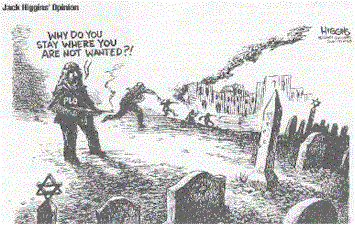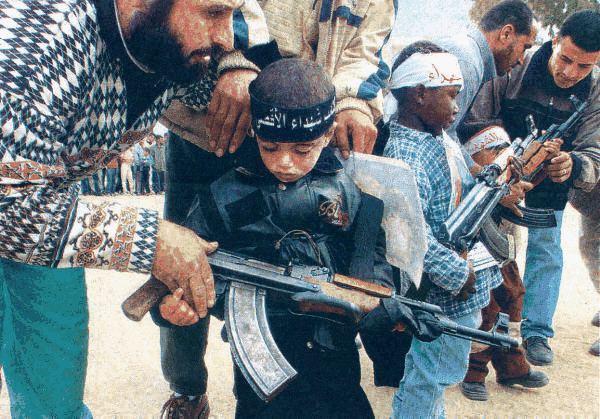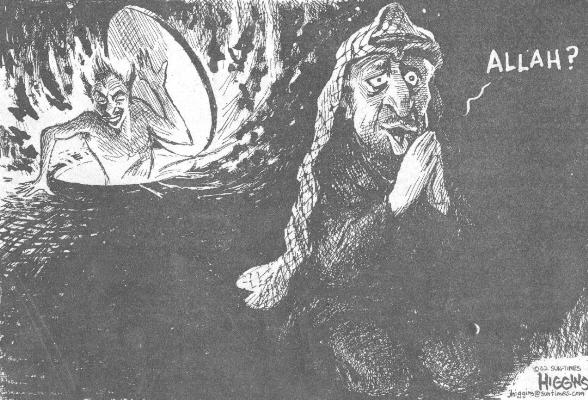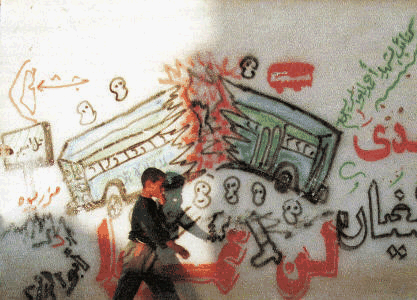|
Is the Jordan example not convincing? Well, a replay wasn't too long in
coming. Within months of their expulsion from Jordan, Mr. Arafat and the
PLO were setting up shop in Lebanon and tearing at the fabric of that
country too. Lebanese Christians, particularly, resented suffering the
Israeli retaliations that the PLO's cross-border raids provoked. In April
1974, for example, the PLO killed 18 at Kiryat Shimona and 20, mostly
schoolgirls, at Maalot, both in northern Israel.
The early '70s were also boom years for PLO terrorism on the
international stage. The year 1972 alone saw PLO groups blow up a West
German electricity plant, a Dutch gas plant and an oil refinery in Trieste,
Italy; kill, in conjunction with the Japanese Red Army, 24 at Israel's Lod
airport; and massacre 11 Israeli athletes at the Munich Olympics. In early
1973, Black September took the American ambassador and his deputy (along
with one Belgian diplomat) hostage in Sudan's capital, Khartoum, and, after
President Nixon refused to negotiate, murdered them.
Flush with money from his Arab and Soviet sponsors, as well as an income
tax levied by the Gulf states on Palestinian workers, Mr. Arafat quickly
built up a state -- called the Fakhani Republic after the Beirut
neighborhood in which he operated -- in much of Lebanon. By 1975, he had
some 15,000 troops under his command, with many more associated
paramilitaries, and was acquiring tanks and anti-aircraft guns.
PLO-affiliated conglomerates, including one controlled by Ahmed Qurei,
who would later negotiate the Oslo Accords, monopolized everything from
shoes to baby food. Billions of dollars flowed through the PLO, the only
thorough record of which seemed to be a small notebook Mr. Arafat carried
on his person. His underlings levied arbitrary taxes on the Lebanese, and
practiced other forms of extortion, car theft and racketeering.
That year -- 1975 -- Christian rage boiled over, and Lebanon's long
civil war began. By early 1976, the PLO and its allies controlled most of
the country. But that summer Palestinian assassins murdered the U.S.
ambassador to Lebanon, and the U.S., Israel and the Arab states tacitly
supported a Syrian-led invasion of the country, which reversed many PLO
gains. An October cease-fire stabilized the situation. But 40,000 had been
killed. And in subsequent years, PLO attacks into Israel continued,
provoking more Israeli retaliation.
The endgame began in June 1982, when renewed PLO attacks on Israel
coincided with an assassination attempt on the Israeli ambassador in
London. Prime Minister Menachem Begin ordered Defense Minister Ariel Sharon
to send Israel's armed forces into Lebanon to drive out the PLO. Mr.
Arafat's appeals to the Arab League and the U.N. went unheeded, while
ordinary Lebanese took to crying "Enough!" whenever they spotted him. In
August President Reagan convinced Israel to stop the fighting, but Mr.
Arafat, whose forces had been routed, had already told the Lebanese
government he would leave the country. On Aug. 30, he left for Tunis, while
his forces dispersed to other Arab countries. The Lebanese would suffer
eight more years of the civil war he provoked.
The extent of Mr. Arafat's personal involvement in the numerous
terrorist acts that have left an indelible stain on the Palestinian cause
has long been a matter of debate among knowledgeable observers. But there
is no question that, if not outright front groups for Mr. Arafat's Fatah
faction, the groups that claimed responsibility were most often fully paid
up members of the PLO, and that Chairman Arafat did nothing to stop
them.
| |



